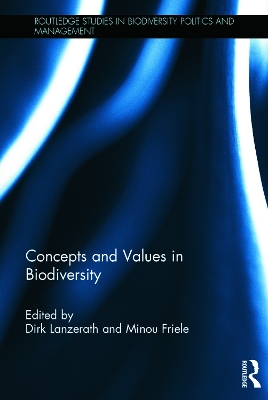Routledge Studies in Biodiversity Politics and Management
1 total work
Concepts and Values in Biodiversity
Biodiversity may refer to the diversity of genes, species or ecosystems in general. These varying concepts of biodiversity occasionally lead to conflicts among researchers and policy makers, as each of them require a customized type of protection strategy. This book addresses the questions surrounding the merits of conserving an existing situation, evolutionary development or the intentional substitution of one genome, species or ecosystem for another. Any practical steps towards the protection of biodiversity demand a definition of that which is to be protected and, in turn, the motivations for protecting biodiversity. Is biodiversity a necessary model which is also useful, or does it carry intrinsic value? Debates like this are particularly complex when interested parties address it from different conceptual and moral perspectives. Comprised of three parts, each complemented by a short introductory paragraph, this collection presents a variety of approaches to this challenge.
The chapters cover the perspectives of environmental scientists with expertise in evolutionary, environmental biology, systematic zoology and botany, as well as those of researchers with expertise in philosophy, ethics, politics, law and economics. This combination facilitates a truly interdisciplinary debate by highlighting hitherto unacknowledged implications that inform current academic and political debates on biodiversity and its protection. The book should be of interest to students and researchers of environment studies, biodiversity, environmental philosophy, ethics and management.
